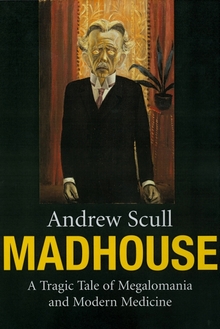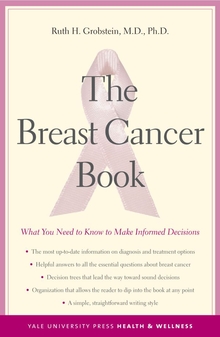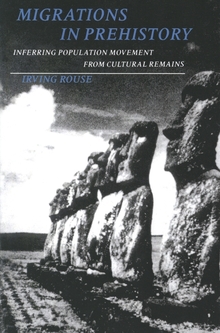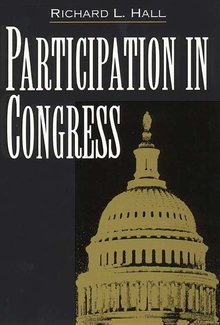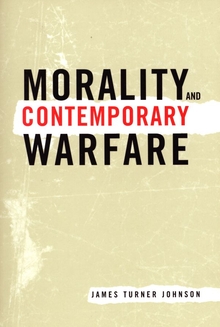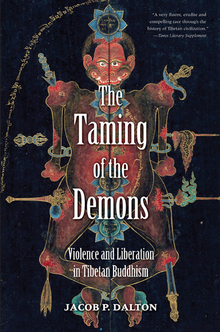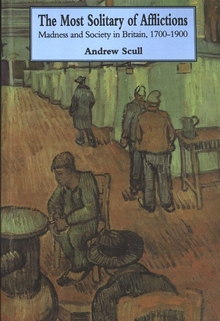Madhouse
WARNING
You are viewing an older version of the Yalebooks website. Please visit out new website with more updated information and a better user experience: https://www.yalebooks.com
A Tragic Tale of Megalomania and Modern Medicine
Andrew Scull
“Reads as much like a novel as it does a work of medical scholarship.”—Patrick McGrath, New York Times Book Review
Madhouse revealsa long-suppressed medical scandal, shocking in its brutality and sobering in its implications. It shows how a leading American psychiatrist of the early twentieth century came to believe that mental illnesses were the product of chronic infections that poisoned the brain. Convinced that he had uncovered the single source of psychosis, Henry Cotton, superintendent of the Trenton State Hospital, New Jersey, launched a ruthless campaign to “eliminate the perils of pus infection.” Teeth were pulled, tonsils excised, and stomachs, spleens, colons, and uteruses were all sacrificed in the assault on “focal sepsis.” Many patients did not survive Cotton’s surgeries; thousands more were left mangled and maimed. Cotton’s work was controversial, yet none of his colleagues questioned his experimental practices. Subsequent historians and psychiatrists too have ignored the events that cast doubt on their favorite narratives of scientific and humanitarian progress. In a remarkable feat of historical detective work, Andrew Scull exposes the full, frightening story of madness among the mad-doctors. Drawing on a wealth of documents and interviews, he reconstructs in vivid detail a nightmarish, cautionary chapter in modern psychiatry when professionals failed to police themselves.
Andrew Scull is professor of sociology and science studies, University of California, San Diego. He is also the author of Most Solitary of Afflictions: Madness and Society in Britain, 1700-1900, published by Yale University Press
"A tour de force of investigative reporting and a provocative case study of megalomania, junk science and cronyism vs. the Hippocratic Oath. It's also a fast-paced medical thriller."—Sylvia Nasar, author of A Beautiful Mind
"The most impressive piece of narrative psychiatric history I have ever read."—William F. Bynum, Wellcome Centre for the History of Medicine
"Psychiatrist Henry Cotton promulgated the then radical notion that mental illness could have a biological basis. . . . Scull, a sociologist, profiles Cotton and his surgical zeal in a cautionary tale of medical arrogance run amok."—Discover
"An engaging narrative. . . . Scull tells a powerful story."—Laura D. Hirshbein, JAMA
“A compelling narrative. . . . Scull’s efforts to make these doctors and their motives come off the page with the use of strong narrative technique is to be applauded. Thanks to the details Scull gathers and the narrative approach he employs, even lay readers are able to enter into this abominable chapter in American psychiatric care and to wonder just how far we’ve come (or failed to come) since those days.”—Bernadette Murphy, Los Angeles Times
"Scull presents a meticulous account of what he calls 'a tragic tale of megalomania and modern medicine.' He is excellent at drawing out the links between Cotton's activities, the sorry history of medico-biological theories of mental illenss, the striving of psychiatrists to attain the status of their general medical colleagues, and the ECT, insulin coma and other brutal bio-medical treatments that came after, devised by a profession desperate to justify its own existence."---Mental Health Today
"A painstaking reconstruction of a grim and sorry episode in American psychiatry. The book is meticulously researched and brings to light many aspects of the history of psychiatry that have significance beyond the episode under analysis. . . . Madhouse should be prescribed reading for mental health professionals."—Tony O'Brien, Metapsychology
"A fascinating story. . . . Makes a strong case for the value of expert clinical research and the danger of ignoring its findings. . . . Scull tells these stories with journalistic intensity and rhetorical flourish. . . . The story is interesting, is well told, and offers important lessons on how not to structure a clinical research program."—Robert Michels, M.D., New England Journal of Medicine
“Scull tells Cotton’s story skillfully, with considerable suspense and emphasis on physical appearance and personality. . . . A fine piece of scholarship. . . . A fascinating and well-documented history.”—Sherwin B. Nuland, New York Review of Books
“Reads as much like a novel as it does a work of medical scholarship. Narrative pace and structure are nicely judged, character and setting vividly evoked.”—Patrick McGrath, New York Times Book Review
"Madhouse reads like a Stephen King novel, except it's all true."—Newark Sunday Star-Ledger
"Scull has written a dramatic account that speaks to a variety of audiences."—Ben Harris, PsycCritiques
"[A] meticulous historical narrative. . . . [A] compelling account of a shameful episode."—Publisher’s Weekly
"[A] brilliant piece of medical scholarship..."---The Irish Times
'Madhouse is fascinating. Scull's detection is impressive; it extends over years.' - Times Literary Supplement
"The elegantly written Madhouse is as gripping as any crime thriller."—Frank Campbell, Weekend Australian
"Treat yourself to Andrew Scull's new book, a fast-paced thriller that reminds us that fervour can lead us astray."—Gordon Warme, Canadian Medical Association Journal
Publication Date: September 4, 2007
30 b/w illus.

